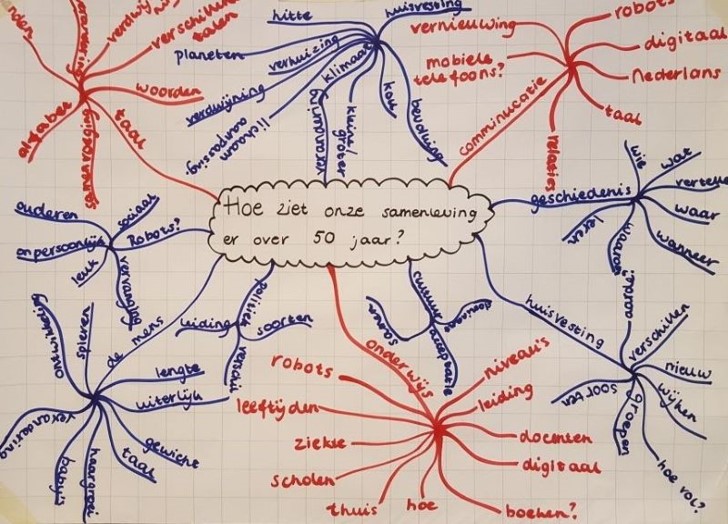Last week I had a fun and fascinating conversation with Brigitte Meijer, dean at Beatrix College in Tilburg. It was about FutureLab, a career orientation program, and why schools that are enthusiastic about this new program, have such a hard time taking the next step after the first conversation and exploring how to implement the program in their school.
Career orientation is just a bit on the side....
Brigitte then made a point that touched me, namely: many schools do career orientation on the side. At the very back of all subjects, career orientation dangles: Oh yes,..., difficult..., we already have to do so much...and that too... Well, 10 minutes per pupil with the mentor and a couple of half-hour meetings per year with the counselor in senior years.
A look into a company and talking about it at the kitchen table
For someone like me, who does not come from an educational background, it is hard to imagine that schools talk about an inner and an outer world. The inner world is the school, the outer world is society and the labour market with all the developments taking place there. For many schools - teachers and students - this is far from their bed.
Through LinkedIn or in real life, how many subject teachers have a network with people in the business world and sometimes visit a company? How many students have parents who, if their child shows an interest in a particular industry or profession, arrange for their son or daughter, through their own network, to have an orientation meeting with a look behind the scenes of the company to get a closer look at how things work in practice and what developments are taking place in that world? After which they talk about it at the kitchen table at home: "Did you like it or did you have other expectations? Is it maybe something for you, and what do you need for it? And if you are interested in something else next year, I will arrange such a talk for you again through my network....".
Now that is meaningful learning!
Schools are thinking about meaningful learning and how (on earth) to motivate students, as adolescents are often hanging out in couches or gaming on their mobile phones or PCs, instead of paying attention and doing their homework. As a mother of two daughters at this stage of their life, I know all about it....
But what is the meaning of all those school subjects if you do not connect them with the outside world? Isn't it the other way round: all subjects should be dedicated to career orientation? Career orientation as the most important part of school: What do you want to be later on? How do you become who you are? Mirroring the outside world to discover where your heart lies, what you already have, and what you still have to learn and develop to be able to participate and be meaningful.
Being motivated at school
If you discover through career orientation that you want to be an architect later, you suddenly find yourself in math class differently.... If you later want to work in an international company, it's quite useful to be good at English. And you can do a lot more with your creativity than drawing and painting as a hobby. Geography is not about knowing all kinds of "boring" definitions, about all possible landscapes or about the meaning of symbols in the legend of a map, but about being able and willing to make a contribution to climate problems, overpopulation, food supply, prevention of natural disasters, water management, alternative energy... Right? Then it's not a boring subject at all, but rather very topical. Let's see how motivated students are at those school desks then. Even more so, if they are allowed to think and work on future questions from companies at school, where they can actually use their knowledge.
Therefore FutureLab
That's why I started FutureLab. I would like to work with secondary schools and realize with them that all subjects will revolve around career orientation. Inner and outer world one whole. A challenge? Of course! But I love that.
I am curious about reactions from secondary schools. Recognisable? Or is the situation at your school very different from the one I describe? How would you really like it and what possibilities do you see? Who wants to take up the challenge with us?

